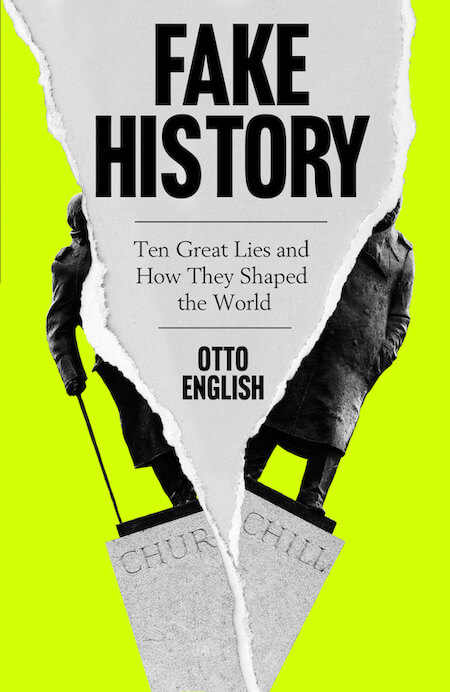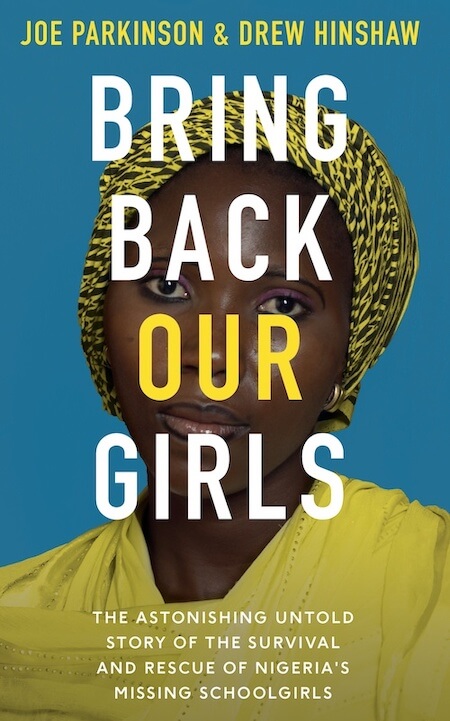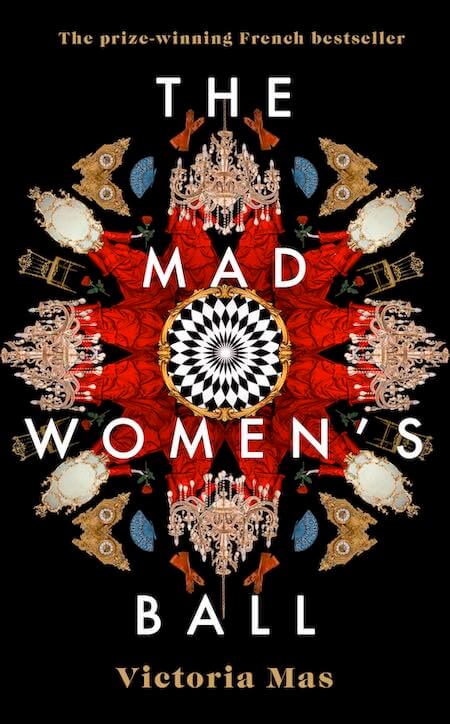 Fake History
Fake History
There are two big problems with history. One is that it can be quite dreary. The second is that history is mainly recorded by the dominant people, and that means it’s been written by white men, about white men, for white men.
English tears down the narratives they have spun - and blitzes the notion of history being dull - in his fabulous book Fake History, which debunks some of the most enduring historical myths.
I warmed to it immediately with the author’s candid comments about his family. He starts with a poignant description of his grandparents’ tiny old home in an English mining village, then descends into the bleakness of his grandfather’s memories of the First World War, which could reduce the 90-year-old man to tears decades later. English was ‘an asker of awkward questions from an early age’ and in Fake History he shows how the present is manipulated by fabrications of the past.
This meticulously researched and entertaining book is highly relevant in an age of fake news, where politicians and social media nobodies influence the agenda. It’s also topical with its comments on the trashing of statues to men whose stories were doctored to plaster over their ignominious deeds.
English has a lightness of style and a delightful sense of irony and tackles his subject with a glorious sense of fun.
Fake History by Otto English is published by Welbeck at R297.
 Such a Quiet Place
Such a Quiet Place
Polite smiles and friendly chat are the currency that keeps everything running smoothly in civilised suburbia.
Underneath, some of the neighbours know that someone’s husband is cheating on her, that the man next door is planning to leave his fiancée, and that everybody despises that other stuck-up couple. But they smile insincerely and nod their greetings, and nobody says anything nasty except behind closed doors. Until the couple that nobody likes is found dead in their beds, and fingers begin to point at the newcomer who doesn’t quite fit in with this socially sterile conformity.
Author Megan Miranda paints a wonderfully descriptive picture of suburbia in Such a Quiet Place, a taut thriller that makes the excellent point that the collective power of self-righteous ‘decent’ people can be a force for evil when it’s channelled in the wrong direction. The ability of a few to lead the many is compounded by the silent acquiescence of those who lack the courage speak out against it - as is so often demonstrated in conflicts around the world.
It begins by capturing the unease of Harper Nash when her housemate Ruby unexpectedly returns, released from jail in a mistrial involving her apparent crime. The writing is descriptive but tight and fast-paced. You’re happy to be pulled along by its twists, knowing that the author may be misleading you as the line between culprit and victim keeps shifting. It’s riddled with social commentary and it’s a wonderful study in human characteristics.
Such A Quiet Place by Megan Miranda is published by Corvus at R272.
 Bring Back Our Girls
Bring Back Our Girls
You might vaguely remember the shocking news of 276 girls in Nigeria who were kidnapped by Boko Haram.
Maybe you ramped up the Twitter storm by reposting #BringBackOurGirls, a hashtag that spread globally and piled pressure on the Nigerian government to mount a rescue mission. That was way back in 2014, and the world soon moved on to the next disaster and outrage.
Bring Back Our Girls by Joe Parkinson and Drew Hinshaw is the complete opposite of that brief and shallow flurry on social media. The authors are two of the Wall Street Journal’s most experienced foreign correspondents, and this is a solid, incredibly well researched account of the kidnapping of the Chibok girls, the messy and conflicting efforts to rescue them, and the far from satisfactory outcome. They amassed the information over six years by interviewing hundreds of individuals involved in the drama, including 20 of the schoolgirls.
The story also explains some of the philosophies that characterise Boko Haram and other Islamic terrorist groups. Its insight there and into the messy state of Nigerian politics are details to store in a section of your brain marked ‘hopefully I’ll never need to know that’.
The story itself is so well written that with a vivid imagination you can visualise it playing out.
Bring Back Our Girls by Joe Parkinson and Drew Hinshaw is published by Swift at R378.
 The Madwomen’s Ball
The Madwomen’s Ball
The first thing to attract you to this book will surely be the title – The Madwomen’s Ball.
Who can resist a story of the mad, with all the fascinating workings of the brain and the frisson of fear that one day we will be afflicted?
This best-selling and award-winning debut novel by Victoria Mas is wonderful, blending historical fact with fiction to create an engrossing tale. More than that, it’s imbued with a refreshingly strong theme of feminism that catches you unawares then has you nodding ‘hell, yes’.
It’s set in an asylum in Paris in 1885 and features real historical characters like Jean-Martin Charcot, a neurologist and professor of anatomical pathology. He was famous for using hypnosis on patients classified as ‘hysterics’ to see if physical disorders like the paralysis of a limb could be triggered by a malfunction of the mind.
One of the fictional characters is Louise, a young girl traumatised by rape who he uses for his popular public lectures about hypnosis, when doctors, journalists, politicians and other voyeurs flocked in to see mad women perform.
Yet the inmates aren’t all insane. Some are just troublesome wives or free-spirited daughters. The idea that if you can’t shut them up, you can lock them up has turned the asylum into a dumping ground for women who disturb the peace. What’s most disturbing is that this novel set in 19th century France lays bare realities that are still the story of our times. “Truth be told, whether free or incarcerated, women were not safe anywhere. Since the dawn of time, they had been victims of decision that were taken without their consent,” Mas writes.
It’s an entertaining and compelling read that you’ll devour in a couple of days, so caught up in the plot that you neglect to realise how sad it is until the epilogue.
The Madwomen’s Ball by Victoria Mas is published by Doubleday at R297.